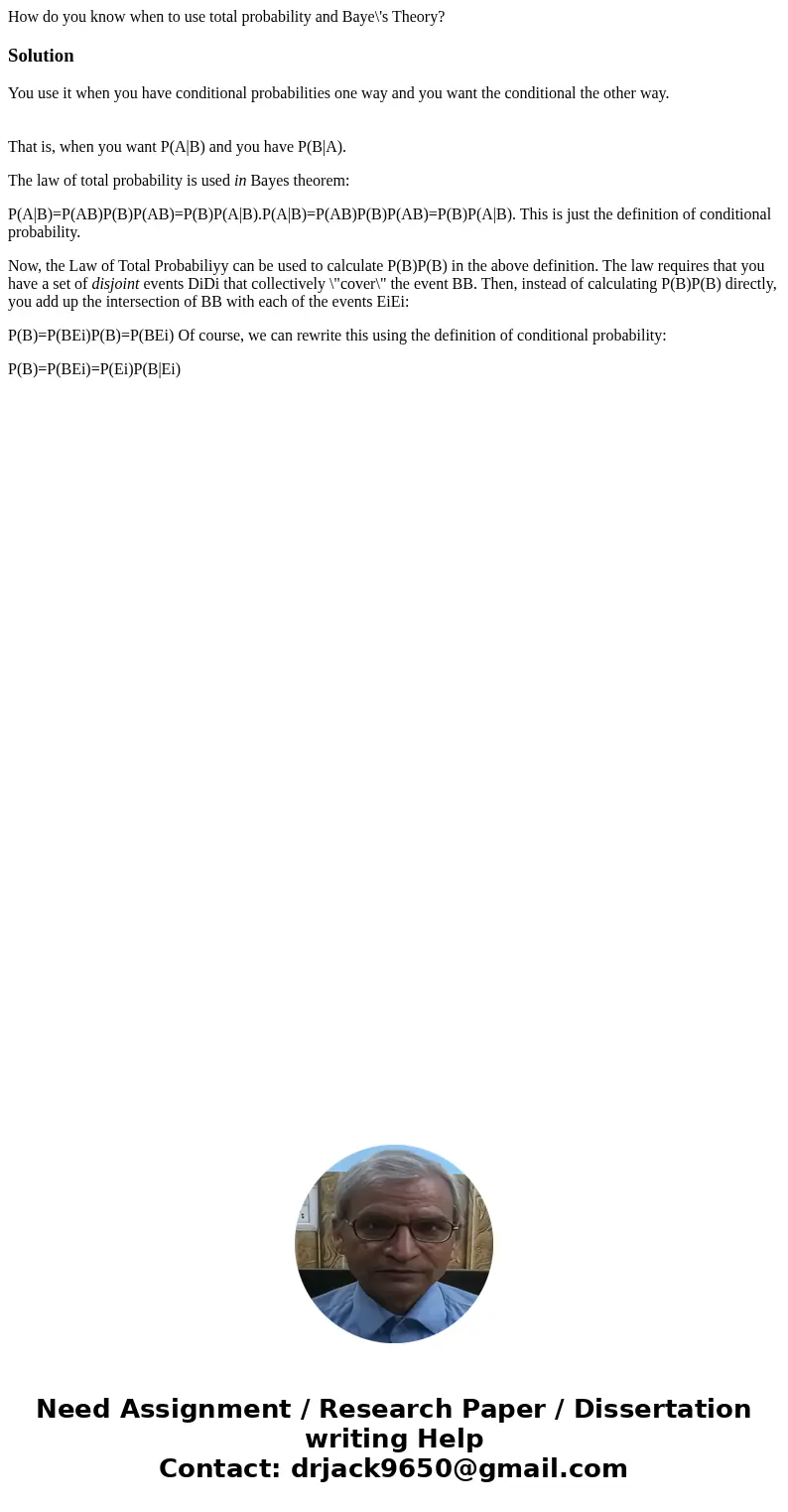How do you know when to use total probability and Bayes Theo
How do you know when to use total probability and Baye\'s Theory?
Solution
You use it when you have conditional probabilities one way and you want the conditional the other way.
That is, when you want P(A|B) and you have P(B|A).
The law of total probability is used in Bayes theorem:
P(A|B)=P(AB)P(B)P(AB)=P(B)P(A|B).P(A|B)=P(AB)P(B)P(AB)=P(B)P(A|B). This is just the definition of conditional probability.
Now, the Law of Total Probabiliyy can be used to calculate P(B)P(B) in the above definition. The law requires that you have a set of disjoint events DiDi that collectively \"cover\" the event BB. Then, instead of calculating P(B)P(B) directly, you add up the intersection of BB with each of the events EiEi:
P(B)=P(BEi)P(B)=P(BEi) Of course, we can rewrite this using the definition of conditional probability:
P(B)=P(BEi)=P(Ei)P(B|Ei)

 Homework Sourse
Homework Sourse